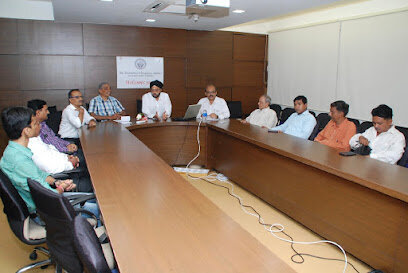Best Art & Cultural Property Law Lawyers in Ahmedabad
Share your needs with us, get contacted by law firms.
Free. Takes 2 min.
List of the best lawyers in Ahmedabad, India
About Art & Cultural Property Law in Ahmedabad, India
Art & Cultural Property Law in Ahmedabad, India, is a specialized area of law that addresses the legal issues surrounding the management, protection, and commercialization of art and cultural heritage. This field encompasses a broad range of topics, including intellectual property rights, the protection of indigenous and cultural artifacts, heritage property laws, and the import/export of cultural goods. Ahmedabad, with its rich cultural history and status as a UNESCO World Heritage City, presents unique challenges and opportunities for the application of Art & Cultural Property Law.
Why You May Need a Lawyer
Individuals and organizations may require legal assistance in Art & Cultural Property Law for various reasons:
- Artists seeking to protect their intellectual property rights or negotiate fair contracts.
- Museums and galleries involved in the acquisition, sale, or loan of art pieces.
- Private collectors needing guidance on the lawful procurement and international transport of artworks.
- Organizations responsible for the preservation and protection of cultural heritage sites.
- Firms dealing with disputes over ownership and provenance of cultural artifacts.
- Communities aiming to safeguard their traditional knowledge and cultural expressions.
Local Laws Overview
The legal framework for Art & Cultural Property Law in Ahmedabad, India, is supported by a combination of national and local regulations. Key aspects include:
- The Antiquities and Art Treasures Act, 1972: Governs the export of antiquities and art treasures to prevent smuggling and illegal trade.
- The Indian Penal Code, 1860 and The Customs Act, 1962: Provide penalties for offenses related to illegal possession or trade of cultural properties.
- The Copyright Act, 1957: Protects the intellectual property rights of artists and creators.
- This Environment (Protection) Act, 1986: Includes provisions for protecting cultural properties that overlap with environmental concerns.
- Local Municipal Laws: Specific to Ahmedabad, these laws regulate the preservation of cultural heritage within the city’s jurisdiction, including designated heritage sites.
Frequently Asked Questions
What is cultural property?
Cultural property refers to objects, sites, or artifacts that hold importance for archaeology, prehistory, history, literature, art, or science. It includes heritage buildings, monuments, artworks, manuscripts, and traditional cultural expressions.
How can I ensure the legality of purchasing an artwork?
To ensure legality, verify the artwork’s provenance, check for any applicable export permits, and consult with a legal expert on compliance with relevant laws such as The Antiquities and Art Treasures Act, 1972.
What are the consequences of illegally exporting cultural property from India?
Illegally exporting cultural property can lead to severe penalties, including fines and imprisonment under The Antiquities and Art Treasures Act, 1972, and applicable sections of The Customs Act, 1962.
Who owns cultural property in India?
Ownership can vary: governmental entities often own public cultural properties, while private individuals or institutions might own privately collected artifacts. Indigenous communities may also claim rights over their traditional or cultural artifacts.
What is the role of UNESCO in cultural property law?
UNESCO provides an international framework for the protection of cultural heritage, including conventions that India is a part of, such as the 1970 Convention on the Means of Prohibiting and Preventing the Illicit Import, Export and Transfer of Ownership of Cultural Property.
What constitutes an "antiquity" under Indian law?
An antiquity is an object or artifact that has special significance in the field of art, history, or culture, and is at least 100 years old per The Antiquities and Art Treasures Act, 1972.
Can traditional knowledge be protected legally?
Yes, through mechanisms like the Biological Diversity Act, 2002, and the initiatives of the Traditional Knowledge Digital Library (TKDL) to prevent misappropriation of traditional knowledge.
What should I do in case of a dispute about the ownership of an artwork?
Seek legal consultation immediately to understand your rights and the full extent of the law applicable, such as The Limitation Act, 1963, which may affect the timing of claims.
How are cultural heritage sites protected in Ahmedabad?
Cultural heritage sites are protected through a combination of national laws, such as the Ancient Monuments and Archaeological Sites and Remains Act, 1958, and specific local directives from the municipal government.
How does intellectual property law apply to art and cultural property?
Intellectual property law protects the rights of creators and ensures that artists and other creators receive recognition and financial benefit from what they create.
Additional Resources
Here are some resources that can be helpful:
- Archaeological Survey of India (ASI): Offers guidance on laws regarding antiquities and heritage sites.
- The Gujarat State Archives: Provides access to historical and cultural documents.
- UNESCO India: For information on international conventions and guidelines related to cultural heritage protection.
- Ahmedabad Municipal Corporation: Provides local regulations and protections for cultural sites.
Next Steps
If you need legal assistance in the field of Art & Cultural Property Law, it is important to:
- Identify the specific legal issue or challenge you are facing.
- Gather all related documentation and evidence concerning your case.
- Contact a specialized lawyer or a law firm with expertise in Art & Cultural Property Law.
- Be prepared to discuss all aspects of your situation openly and provide complete information to your lawyer to aid in receiving tailored legal advice.
- Consider joining workshops or informational sessions by legal or cultural bodies focused on cultural property issues.
Lawzana helps you find the best lawyers and law firms in Ahmedabad through a curated and pre-screened list of qualified legal professionals. Our platform offers rankings and detailed profiles of attorneys and law firms, allowing you to compare based on practice areas, including Art & Cultural Property Law, experience, and client feedback.
Each profile includes a description of the firm's areas of practice, client reviews, team members and partners, year of establishment, spoken languages, office locations, contact information, social media presence, and any published articles or resources. Most firms on our platform speak English and are experienced in both local and international legal matters.
Get a quote from top-rated law firms in Ahmedabad, India — quickly, securely, and without unnecessary hassle.
Disclaimer:
The information provided on this page is for general informational purposes only and does not constitute legal advice. While we strive to ensure the accuracy and relevance of the content, legal information may change over time, and interpretations of the law can vary. You should always consult with a qualified legal professional for advice specific to your situation.
We disclaim all liability for actions taken or not taken based on the content of this page. If you believe any information is incorrect or outdated, please contact us, and we will review and update it where appropriate.














